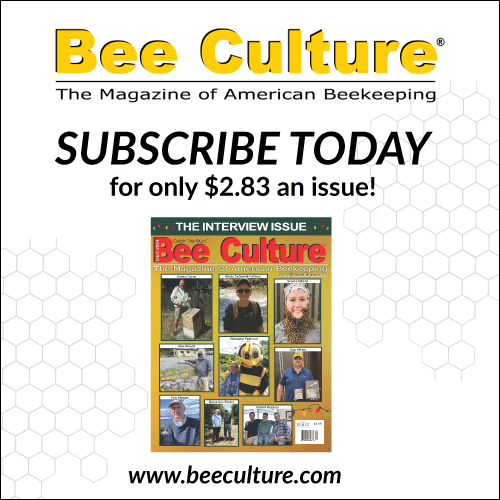by: Laurel Stone
The book is a resource for veterinarians, beekeepers and others interested in honey bees and the increasing health challenges they face.
https://www.wkbn.com/news/local-news/grove-city-news/local-professor-publishes-book-on-honey-bees/
GROVE CITY, Pa. (WKBN) — A professor of biology at Grove City College has just published a book on her adventures as a honey bee vet.
Veterinarians began to work with bees in 2017 after the FDA issued a mandate that all antibiotics given to bees had to go through a prescription or a veterinary feed directive as antibiotic resistance became a growing issue in public health.
Dr. Tracy Farone’s book titled, “Honey Bee Vet: The Adventures of a Veterinarian Seeking to Doctor One of the World’s Most Important Animals,” details her journey as an animal doctor diving into a new field of study — the honey bee. Farone said she learned the art of beekeeping and how it ties into the duties of a veterinarian during a sabbatical where she traveled the world, visiting Scotland, France and Montana.
The book compiles columns that Farone wrote for Bee Culture Magazine over the last four years and organizes her observation in eight “frames” – chapter titles that mimic the number of frames in a traditional bee box – covering everything from handling swarms to hive inspections.
The book is a resource for veterinarians, beekeepers and others interested in honey bees and the increasing health challenges they face.
“You think of these insects as being, you know, insects or little bugs, but they’re little animals,” Farone said. “They get diseases just like we do. They get bacterial diseases, viral diseases and nutritional diseases, and they need a doctor just like anybody else.”
A clinical veterinarian before she became a professor, Farone became interested in beekeeping in the last seven years and started The Bee Project at GCC, which runs an on-campus apiary to study bees, hive health and the public health impacts of apiculture — the technical term for beekeeping. She also keeps her own bee hives and sells honey from her home in Portersville, Pennsylvania.
Farone said despite what some people believe, the USDA reports that the honey bee population has remained relatively level and the bees are not going extinct. However, she says that there is an increase in diseases affecting honey bees, which has made it more difficult to be a beekeeper.
 “The beekeepers that are maintaining our honey bee colonies at that same level, even with all these additional threats, they really deserve to be commended for that, because it’s getting harder and harder to do beekeeping and keep our honey bees healthy and safe,” she said.
“The beekeepers that are maintaining our honey bee colonies at that same level, even with all these additional threats, they really deserve to be commended for that, because it’s getting harder and harder to do beekeeping and keep our honey bees healthy and safe,” she said.
Other native pollinators who do not have the same level of care as honey bees, and Farone said they certainly have experienced some threats and dangers because of that.
“What I tell people to do, if you want to ‘save the bees,’ there’s a few things you can do and some of them are actually kind of fun,” Farone said. “One is to be a lazy gardener … I tell people, ‘Don’t have a lawn, have a yard.’ Let those little flowers come up, let the dandelions come up, let the grass grow a little bit.”
The book was published by Northern Bee Books and is available on the publisher’s website, Barnes & Noble and Amazon.







